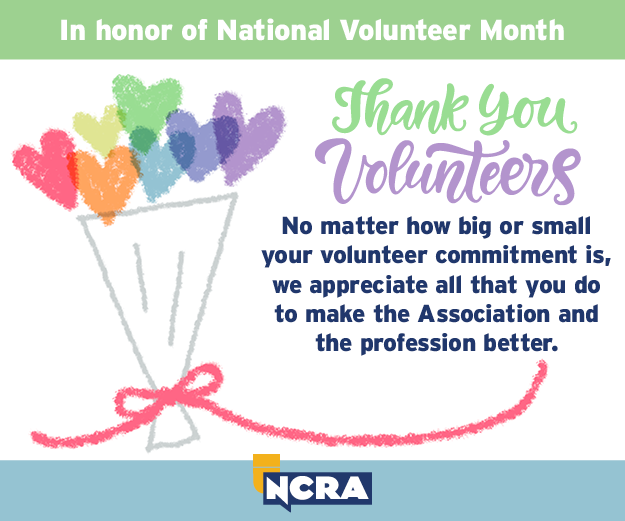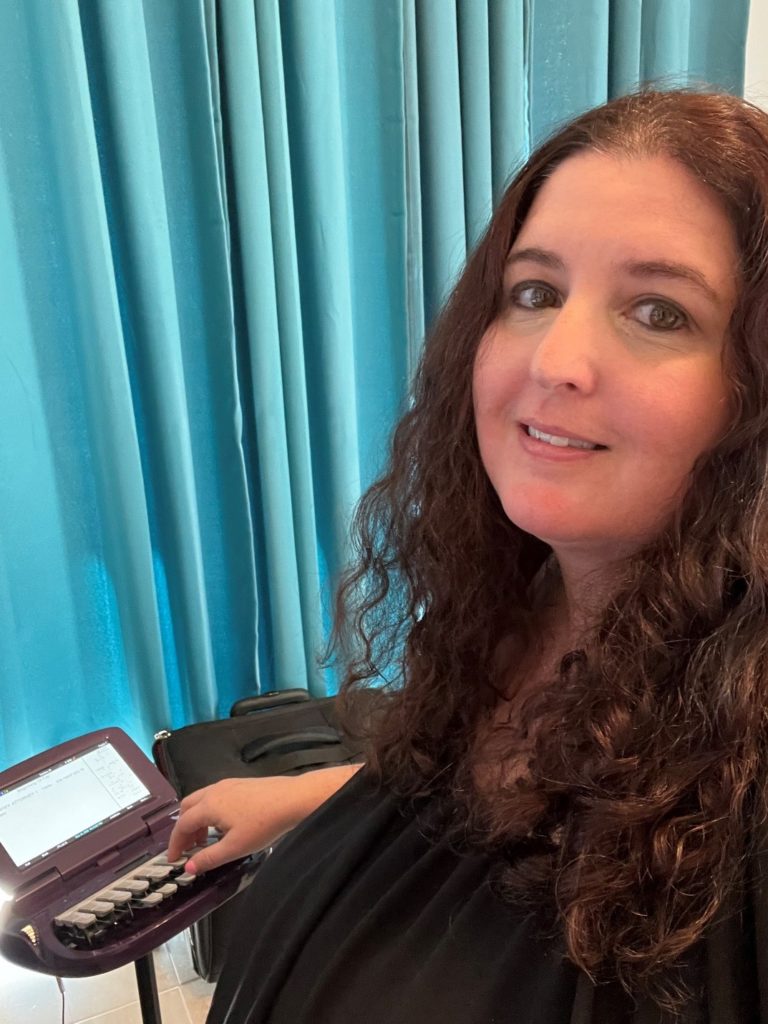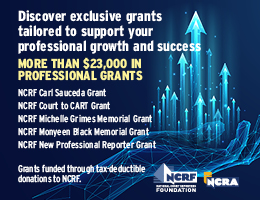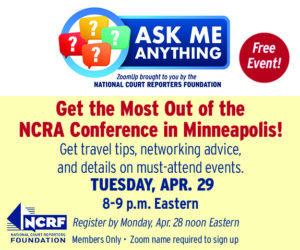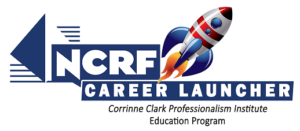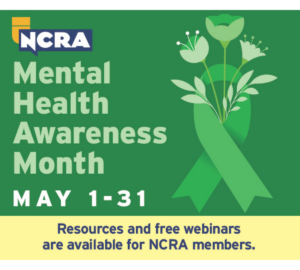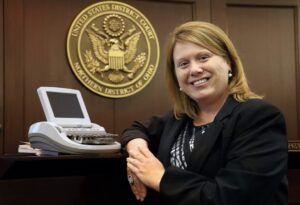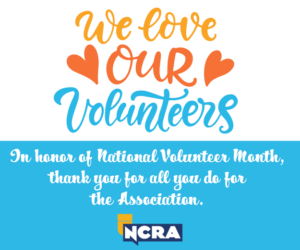In honor of National Volunteer Month celebrated throughout April, the JCR is running a series of articles to learn more about what motivates NCRA members to volunteer.
NCRA member Angela Connolly, RPR, CRR, a freelance court reporter from Port St. Lucie, Fla., has a soft spot for helping students achieve their goals. Not only has she recently joined the Career Mentoring Network with her alma mater Atlantic Technical College in Coconut Creek, Fla., she also volunteers her time as a reviewer for the Career Launcher program that is supported by the National Court Reporters Foundation (NCRF) through its Corrinne Clark Professionalism Institute.
The program is designed to help participants sharpen and polish their skills. The 10-module, self-paced educational offering is accessible through the NCRA Learning Center and is aimed at serving as a bridge to provide tips of the trade by exposing participants to myriad real-life situations.
Connolly said she was motivated to volunteer as a reviewer because of the benefit the program offers to students who are getting ready to begin their careers. “It’s a wonderful tool that’s being offered so that the students can get a feel for what it will be like when they’re out working. It would have been nice to have had a program that was available like this when I started my career more than 20 years ago,” she said.
“What has been the most satisfying to me is that I feel like I have been able to help the students become better prepared based on the knowledge and skills that I have learned through my experience working as a stenographer. The experiences that they are learning are invaluable,” she added. “It’s always scary to jump right into something without knowing what to expect, and hopefully this program can ease some of their fears of the unknown.”
NCRA member Lori Seiden, RPR, a freelance court reporter from Dover, Fla., said she volunteered to serve as a reviewer for the Career Launcher program because she felt it would be interesting to be part of something new. What she has found is that encouraging students with a positive comment on each review has been the most satisfying aspect of being involved.
If you can help others in any capacity, it’s a win/win all the way around.
Lori Seiden
“This career has been very good to me, and it’s fulfilling to be able to give back and give input when I can,” she said. “I hope the understanding of the importance of volunteering will resonate with them as they move forward in their careers,” she added.
Seiden, who also volunteers for NCRA’s Virtual Mentor Program as well as serves on the Florida Court Reporters Association Membership Committee, encourages everyone to consider volunteering when they can.
“If you can help others in any capacity, it’s a win/win all the way around,” she said.
Connolly agrees with Seiden that volunteering to help students can be a way to motivate them to give back when they become working professionals. “I absolutely think that the current students who are enrolled in the Career Launcher program will also want to give back to future students,” she said.
Like Seiden, Connolly encourages others to volunteer. “I believe volunteering for NCRA is so important because we’re in a time where the industry needs us. It’s important to continue to pave the way for future professionals and to keep the integrity of legal proceedings intact,” she said.
“What I would say to encourage other people to volunteer is we need you! We all have our own experiences and stories to tell. Being able to share your knowledge with others is a great learning opportunity for people who are just starting their career,” Connolly added.
Anyone interested in volunteering to serve as an NCRF Career Launcher reviewer can learn more or register at NCRF Career Launcher Reviewer Enrollment or by emailing Brenda Gill, NCRA Membership and Development Manager, at bgill@ncra.org. Career Launcher reviewers are eligible to receive 0.50 PDC (Professional Development Credit)* after reviewing transcripts from 10 modules. To learn more about the program or to register, visit the NCRA Learning Center.
*PDCs are Professional Development Credits, a subset of Continuing Education Units, which can be applied to the overall CEU requirement for maintaining certification. PDCs may be granted for qualifying activities that do not include class time, such as qualifying on a Speed or Realtime Contest leg. Most individuals are limited to 1.0 PDC per cycle toward their continuing education requirements.
Angela Connolly can be reached at serenityreporting@gmail.com. Lori Seiden can be reached at rprlori@tampabay.rr.com.
